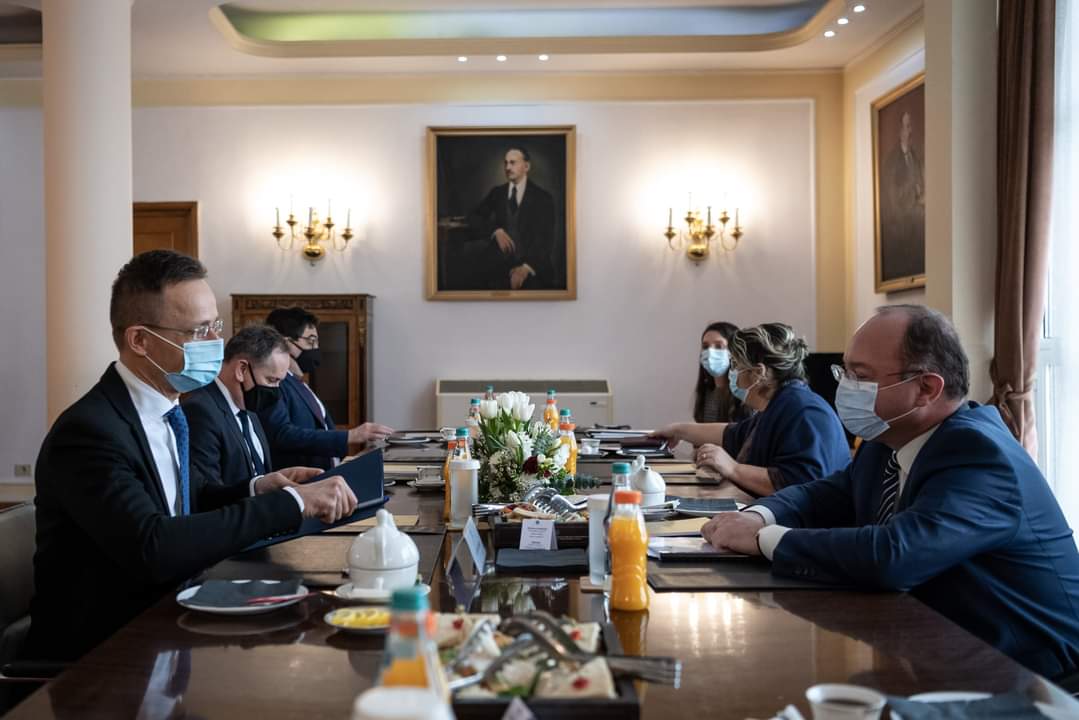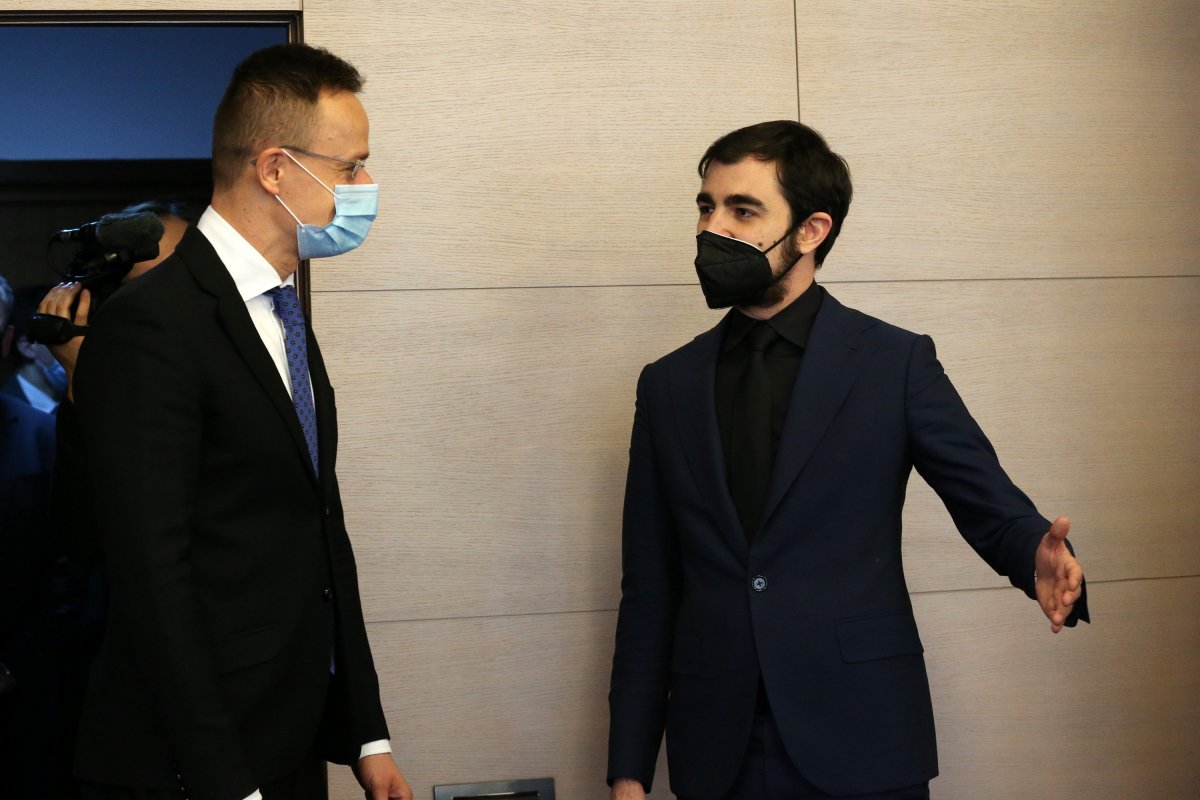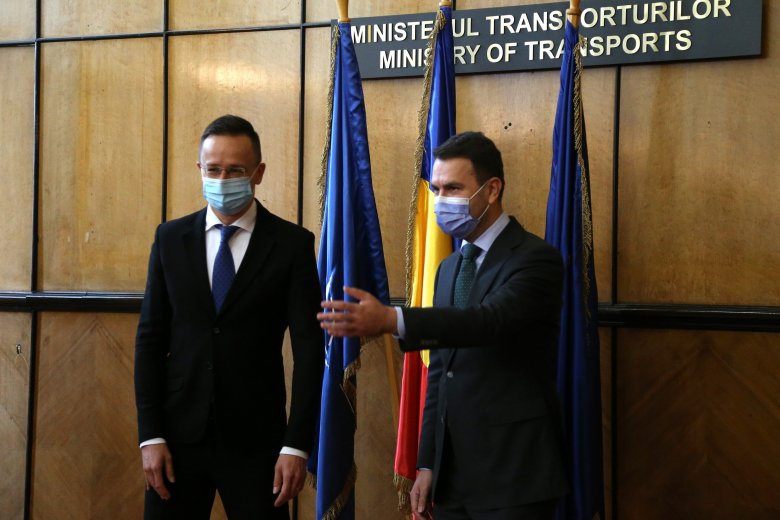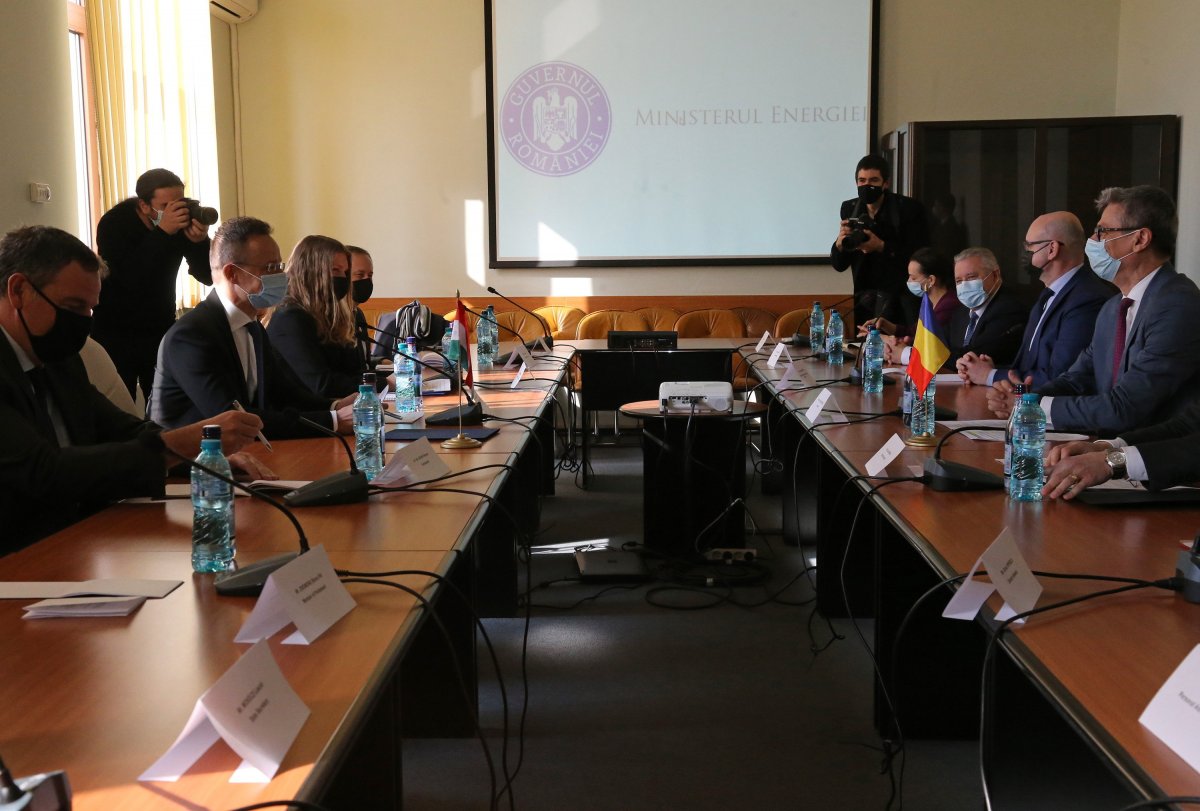Practical successes based on the recognition of common interests serve to build trust in Hungarian-Romanian relations, which also increases the hope of success on sensitive issues related to the rights of national communities, Ministrer Szijjártó emphasized on February 8 in Bucharest, where he met with several members of the new Romanian government. "The two nations are connected by a thousand threads, and the economic, trade, energy and transport ties of Romania and Hungary make it clear that they are mutually interested in each other's development." Romania is the fourth most important export market for Hungary, and the connections between the two countries are also critical due to the significant Hungarian community living in Transylvania. In addition to his Romanian counterpart Foreign Minister Bogdan Aurescu, Minister Szijjártó also met with Claudiu Nasui, Minister of Economy, Catalin Drula Minister of Transport, Virgil Popescu Minister of Energy and Attila Cseke Minister of Development. Among other things, they agreed to open the third motorway connection between the two countries between Mátészalka and Satu Mare by 2024, and to allow new border crossings elsewhere. As Minister Szijjártó said, „it is ridiculous and sad at the same time that there are ten cross-border roads that have been built that could bring communities and settlements along the border closer together, but their use has not yet been allowed.” The Hungarian side undertakes to build the border control infrastructure and asks the Romanian partners to allow the use of the ten roads. It was also agreed that by 2024 Hungary will double-track the Budapest-Békéscsaba-Lökösháza railway line, which will continue from Kürös on the Romanian side. The two countries also have a common interest in starting gas extraction in the Black Sea gas fields belonging to Romania as soon as possible, as this would be another source of gas supply for Hungary. If gas extraction starts in the Black Sea, the capacity of the gas pipeline connecting Romania with Hungary will be doubled, expanding from the current 1.75 billion to 4.4 billion cubic meters, opening Hungarian - and through Hungary - other Central and Western European markets to Romanian gas. The Minister of Foreign Affairs and Trade also mentioned several common interests in which they want to act together with the Romanian side in Brussels. One of these is the issue of nuclear energy, the use of which is currently being pushed into the background by European energy regulation. It is also in the common interest to connect the gas pipeline systems of Bulgaria and Greece as soon as possible, which could provide access to the southern gas transmission route for both Romania and Hungary. They will also work together to ensure that the so-called EU "mobility package" is not enforced in the future, as it puts Central European transport companies at a disadvantage. Minister Szijjártó also consulted with Kelemen Hunor, the president of UDMR, who holds the position of Deputy-Prime Minister in the new Romanian government. He expressed his conviction that the rapprochement of the two countries is also served by the fact that, through its role in government, the representation of Hungarians in Romania is part of the decision-making process that is important for Romania. He assessed that it was the right decision for UDMR to join the governing coalition in Bucharest, which carries the possibility of building new bridges between Hungary and Romania. "This could make the two countries even more interdependent, it made it even clearer: it is not time for hostility, if we are willing and able to start from common interests, it will increase the weight and success and strength of both Hungary and Romania."






